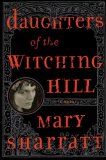Summary | Excerpt | Reading Guide | Reviews | Beyond the book | Read-Alikes | Genres & Themes | Author Bio

A Novel
by Erika MailmanIt is 1507. A friar arrives in Tierkinddorf, a remote German village nestled deeply in the woods. The village has been suffering a famine, but the friar promises he will identify the guilty woman - the witch - who has brought God’s anger upon the town; she will be burned, and bounty will be restored. But how quickly can she be found?
The year is 1507, and a friar has arrived in Tierkinddorf, a remote German village nestled deeply in the woods. The village has been suffering a famine, and the villagers are desperately hungry. The friar’s arrival is a miracle, and when he claims he can restore the town to prosperity, the men and women gathered to hear him rejoice. The friar has a book called the Malleus Maleficarum—“The Witch’s Hammer”—a guide to gaining confessions of witchcraft. The friar promises he will identify the guilty woman who has brought God’s anger upon the town; she will be burned, and bounty will be restored. Tierkinddorf is filled with hope. Neighbors wonder aloud who has cursed them and how quickly can she be found? They begin sharing secrets with the friar.
Güde Müller, an elderly woman, has stark and frightening visions—recently she has seen things that defy explanation. None in the village know this, and Güde herself worries that perhaps her mind has begun to wander—certainly she has outlived all but one of her peers in Tierkinddorf. Yet of one thing she is absolutely certain: She has become an object of scorn and a burden to her son’s wife. In these desperate times her daughter-in-law would prefer one less hungry mouth at the family table. As the friar turns his eye on each member of the tiny community, Güde dreads what her daughter-in-law might say to win his favor.
Then one terrible night Güde follows an unearthly voice and the scent of charred meat into the snow-filled woods. Come morning, she no longer knows if the horror she witnessed was real or imagined. She only knows that if the friar hears of it, she may be damned in this life as well as the next.
Like Gude, the reader is not clear whether what she experiences is real, or not. Is she indeed a witch or just a good woman caught up in bad times? Whether witchcraft is real or not is simply not at issue here because, for the people of Tierkinddorf, it is undisputed fact and Mailman sets her characters' hearts and minds firmly in their milieu, there is no heroic character laboring moral points with an enlightened sensibility centuries ahead of his or her time...continued
Full Review
(454 words)
This review is available to non-members for a limited time. For full access,
become a member today.
(Reviewed by BookBrowse Review Team).
The period of the 'Great European Witch-hunt's' started around 1450. There are many theories as to why the witch-hunts started in the first place (which are neatly outlined at thiswebsite - which, should be noted, belongs to a Catholic College); but the flames were certainly fed by Pope Innocent VIII's 1484 papal bull, in which he condemned an alleged outbreak of witchcraft and heresy in the Rhine River valley and deputized the authors of Malleus Maleficarum (a judicial case-book for the detection and persecution of witches that translates as The Hammer of Witches) to root out all witchcraft in Germany.
Persecution died out in the early 1700s with the Age of Enlightenment. The last execution in England was in 1716, in Germany in 1738 and in...
This "beyond the book" feature is available to non-members for a limited time. Join today for full access.

If you liked The Witch's Trinity, try these:

by Anna Lawrence Pietroni
Published 2011
A story that feels mythical or folkloric, that is driven by a mystery, throbs with tension, and ends in conflagration. Ruby’s Spoon combines a gritty, hypervivid realism with the dreamlike richness of a fable.

Daughters of the Witching Hill
by Mary Sharratt
Published 2011
Daughters of the Witching Hill brings history to life in a vivid and wrenching account of a family sustained by love as they try to survive the hysteria of a witch-hunt.
Censorship, like charity, should begin at home: but unlike charity, it should end there.
Click Here to find out who said this, as well as discovering other famous literary quotes!